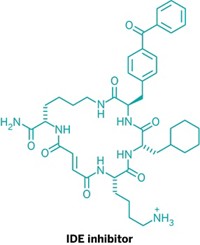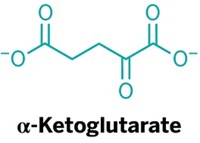Advertisement
Grab your lab coat. Let's get started
Welcome!
Welcome!
Create an account below to get 6 C&EN articles per month, receive newsletters and more - all free.
It seems this is your first time logging in online. Please enter the following information to continue.
As an ACS member you automatically get access to this site. All we need is few more details to create your reading experience.
Not you? Sign in with a different account.
Not you? Sign in with a different account.
ERROR 1
ERROR 1
ERROR 2
ERROR 2
ERROR 2
ERROR 2
ERROR 2
Password and Confirm password must match.
If you have an ACS member number, please enter it here so we can link this account to your membership. (optional)
ERROR 2
ACS values your privacy. By submitting your information, you are gaining access to C&EN and subscribing to our weekly newsletter. We use the information you provide to make your reading experience better, and we will never sell your data to third party members.
Biological Chemistry
New-Age Diabetes Drugs
Protein activator could be used to treat metabolic diseases associated with aging, such as type 2 diabetes
by Sophie L. Rovner
November 28, 2007

Significantly limiting food intake delays aging in many types of organisms, in part by activating analogs of the mammalian SIRT1 protein, which affects insulin sensitivity. But it would be hard for many people to stick to such a restricted diet.
Researchers at Sirtris Pharmaceuticals, Cambridge, Mass.; the University of California, San Diego; and Harvard Medical School have now developed a more palatable method—small-molecule drugs—that could potentially achieve the same goal.
By screening a large collection of compounds, the researchers identified several candidate molecules that activate SIRT1 (Nature 2007, 450, 712). Studies in mice and rats show that the molecules "offer a promising new approach to treating diseases of aging, including type 2 diabetes," the company says. The new compounds differ structurally and are 1,000 times more potent than the red-wine constituent resveratrol, a SIRT1 activator that Sirtris previously showed reduces the health impacts of a high-fat diet and extends life span in mice.
Sirtris CEO Christoph H. Westphal notes that the team is currently testing the candidate compounds for their effects on life span in animals. Human safety testing will begin in 2008. Westphal adds that "this is the first time that small-molecule drugs have been designed to target aging genes."




Join the conversation
Contact the reporter
Submit a Letter to the Editor for publication
Engage with us on Twitter